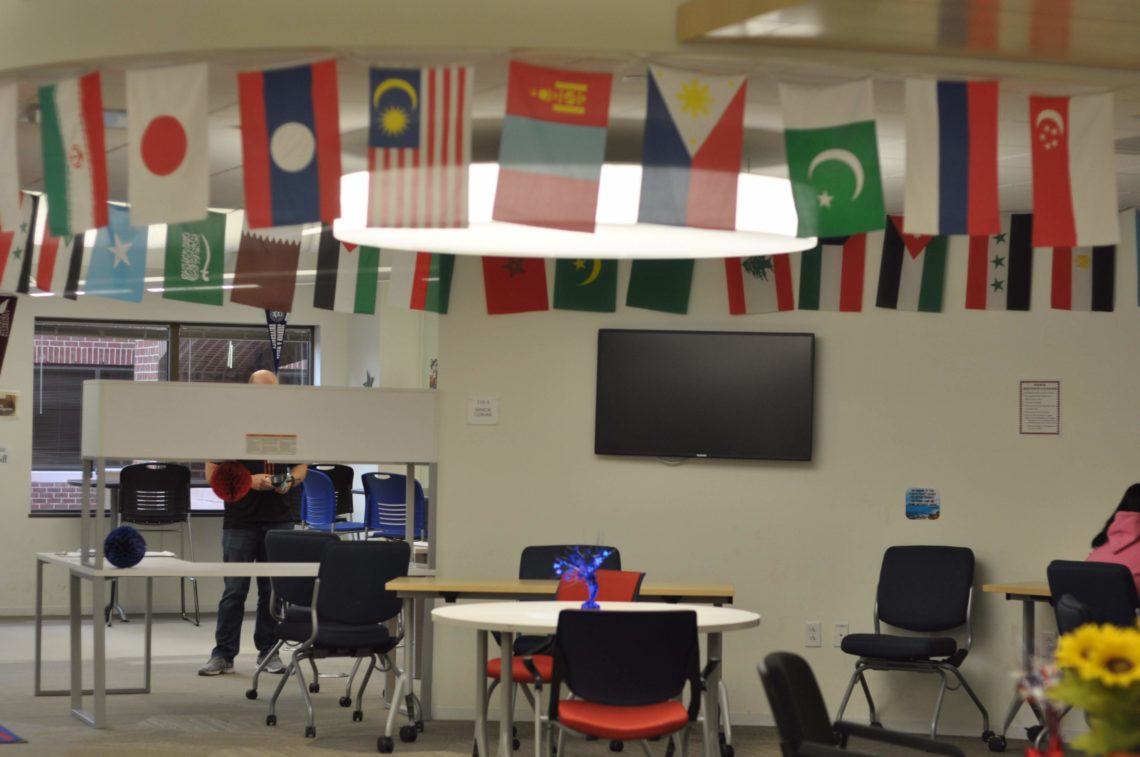TC’s Offsite Campus Provides Nontraditional Approach to High School
Sadie Finn and Alexis Larsen
The hidden gem of Alexandria City Public Schools (ACPS), T.C.’s Satellite campus, offers the perfect learning alternative to the King street and Minnie Howard campuses.
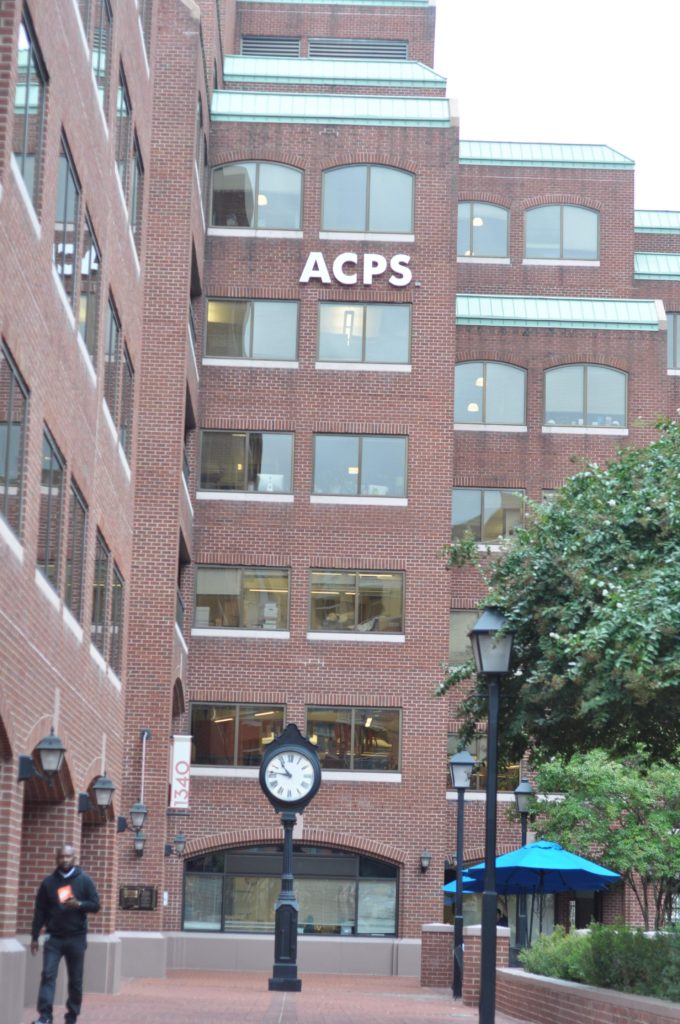
Satellite is entering its eighth year after being established in 2011. It was originally located at Landmark Mall, but was moved after the first couple of years to the ACPS Central Office on Braddock Place near George Washington Middle School and the Braddock Road Metro station.
Even though Satellite is not physically connected to T.C., it is not considered a separate school from the main campus. “We are a campus of T.C. Williams, just like Minnie Howard is,” said Satellite Campus Principal Dr. Izora Everson.
Satellite was created to offer students a flexible schedule and alternative to T.C. Senior Jairo Medrano transferred to Satellite because his job was interfering with his schoolwork. “When I started working, it got to the point that I just started missing out on school every single day, and I was thinking of dropping out at that time,” said Medrano, “But once I came here, now…I work at my pace and in my time. I am thankful for this.” Medrano is now on track to not only graduate, but graduate early.
Senior Julianne Lane came to Satellite because traditional school was not working for her. “In freshman year I had a health crisis, I could not be in school anymore, so we learned about Satellite through [a family friend],” said Lane. She stayed because of “the flexible schedule and the tight-knit community we have [at Satellite].”
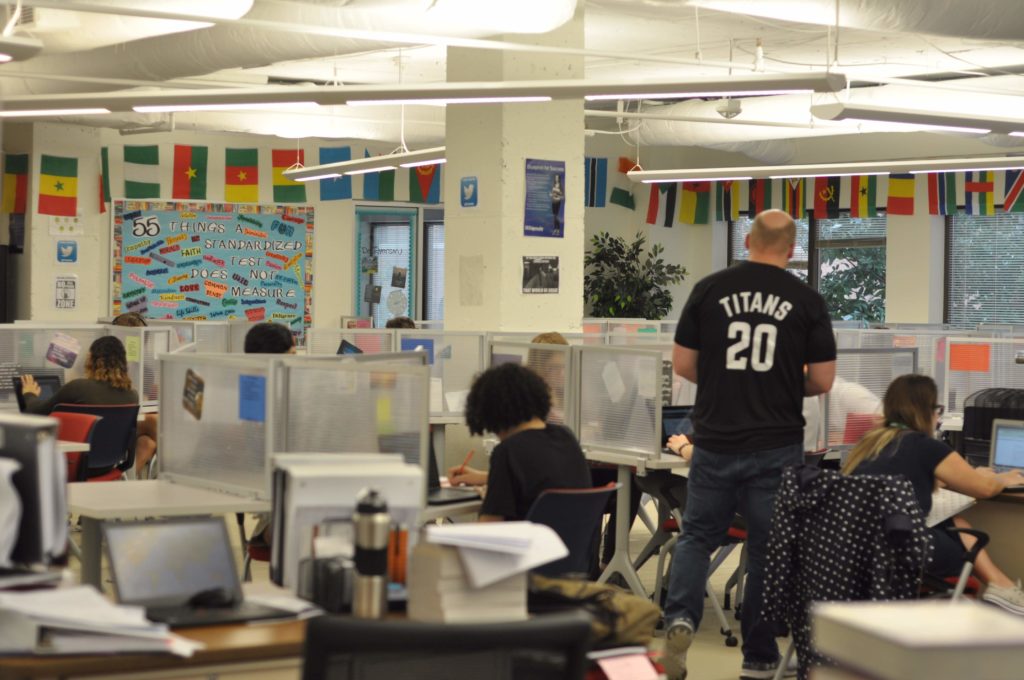
Senior Tilli Widenhofer started attending school at Satellite because T.C. was not a good fit for her. “I was eager to get away from [the T.C.] setting. I hate T.C., I hate the environment– there are too many kids,” Widenhofer said.
The day is separated into three sessions. The first session goes from 8:30 to 12:30, the second session goes from 10:45 to 3:15, and the third session is a whole day schedule from 8:30 to 3:15, which is encouraged for freshmen and seniors.
All classes offered at Satellite are completed online. Satellite students “do two [classes] at a time and then once you finish those two, you roll into the next two,” said Everson. “Ideally, you are finishing up six classes on average, which is what you would be doing at T.C. on average.” The online schedule allows each student to work at their own pace, so kids have the opportunity to get ahead in their classes.
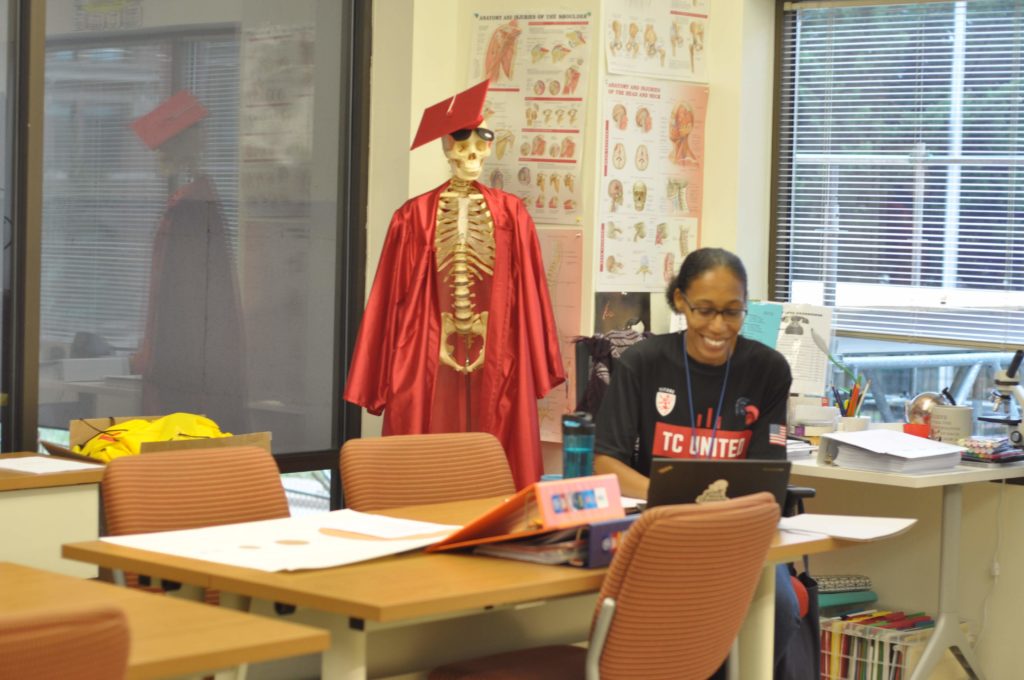
“I like being able to work at my own pace,” said Widenhofer, “I am currently doing two year-long classes, and I am a week ahead in both.”
All classes are offered through either Edgenuity or Florida Virtual, who are approved multi-division online providers under the Virginia Department of Education. All classes offered at the main campus can be found in the online class database, including AP and Honors courses. If Satellite students want to take any classes not offered online, they can decide to be a hybrid student, taking some classes at T.C. and some at the Satellite campus.
Even though the classes are online, students are not expected to learn the material without aid. Satellite is home to five teachers, one for each subject, who help the students complete their coursework, answer questions, and provide other additional support. “Ms. Gibbons will make you a schedule to get caught up [on your classes],” said Widenhofer, “She did that for me last year when I was behind… I needed help catching up and I got it.”
The teachers at Satellite are versatile in their topic since they have to teach classes of all grades and difficulty. “[The teachers] have to be knowledgeable about their subject because they teach so many different classes,” said Widenhofer.
Teachers meet with students one-on-one in order to help that student as best as they can. “Face-to-face really helps students who are not necessarily strong online learners, but want the flexible schedule,” said Everson.
The small environment facilitates connections between students and their teachers.
“Every week [our teachers] check up on us,” said Medrano, “[They ask] are you guys doing well? How are your classes going? And if we are behind, they are concerned, because they care about us.”
Because most of the students’ classwork is individual, Everson and her team work to schedule social activities and field trips. Some field trips already planned for this year include trips to the Newseum, Alexandria Renew, the Capitol Building, the African American History Museum, and the QRIUS Lab at the Natural History Museum. These trips allow students to socialize, learn, and grow friendships the same way other teens would at the main campus.
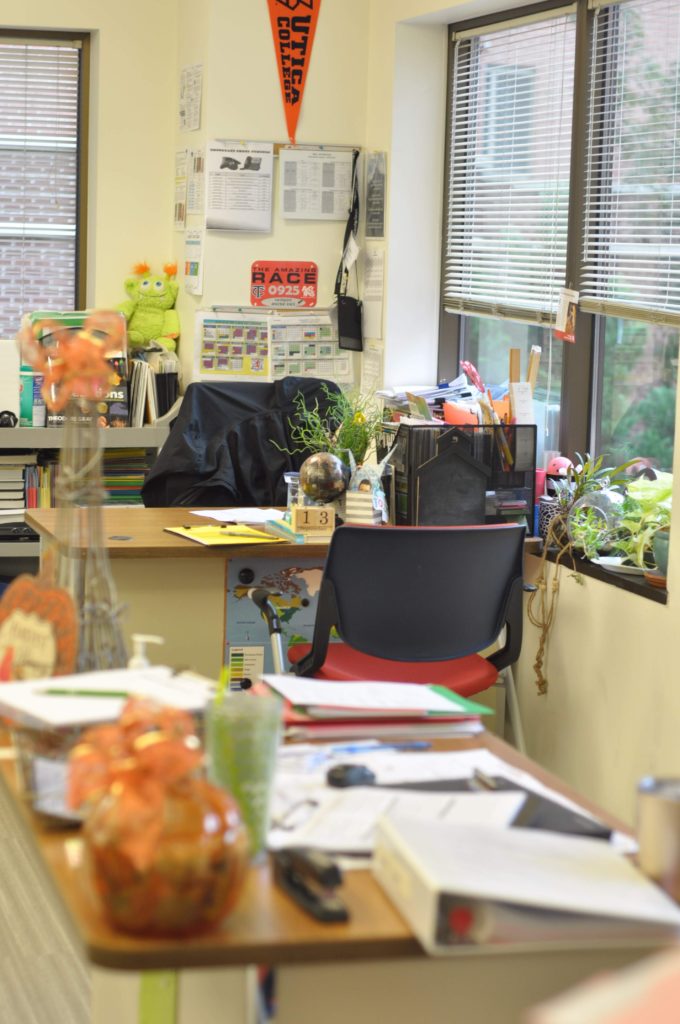
To apply to attend Satellite, students can either fill out an online interest form at https://acpsweb.wufoo.com/forms/q1swf6qy1vamup0/, or talk to their counselor. Either way, counselors fill out the application, which consists of the student’s transcript, SOL scores, and whether the student has a 504 plan or IEP. The student must then write a 250-word personal statement on their interest in Satellite. Before getting accepted, the student will then meet with Everson.
Everson recommends Satellite for any student with a Lexile score over 900, which is the requirement for any online class, and who is self-driven.
Satellite has a maximum capacity of 100 students, and currently there are only 58 students enrolled. Satellite has rolling admissions, so students can apply throughout the school year, although applications are usually not accepted around spring break since the campus generally hits capacity.
Although entering Satellite mid-school year is more complicated, most students will not lose class credits.
“We absolutely do not want [students] to lose credit when coming to Satellite,” Everson said. Some students can start online classes where they left off at T.C., but if it is early in the year, some students have to restart their classes online.
“I know one of the urban legends of Satellite is that you can come here and knock out 15 credits in a year but that is categorically not true,” said Everson. The most credits finished at Satellite in a year were 11 credits, which was done by a student diligently working all year, including the summer.
“It is such an amazing environment, so long as you have good self-discipline,” said Widenhofer. Without dedication, it is easy for students to fall behind in class. “It can be really hard when you get behind, it takes a lot of work and willpower to get caught up,” said Lane.
Satellite is a great option for a lot of students, but not the easy way out. “Apply as soon as possible because there is a waitlist,” said Widenhofer, “this is really a nice place.”

